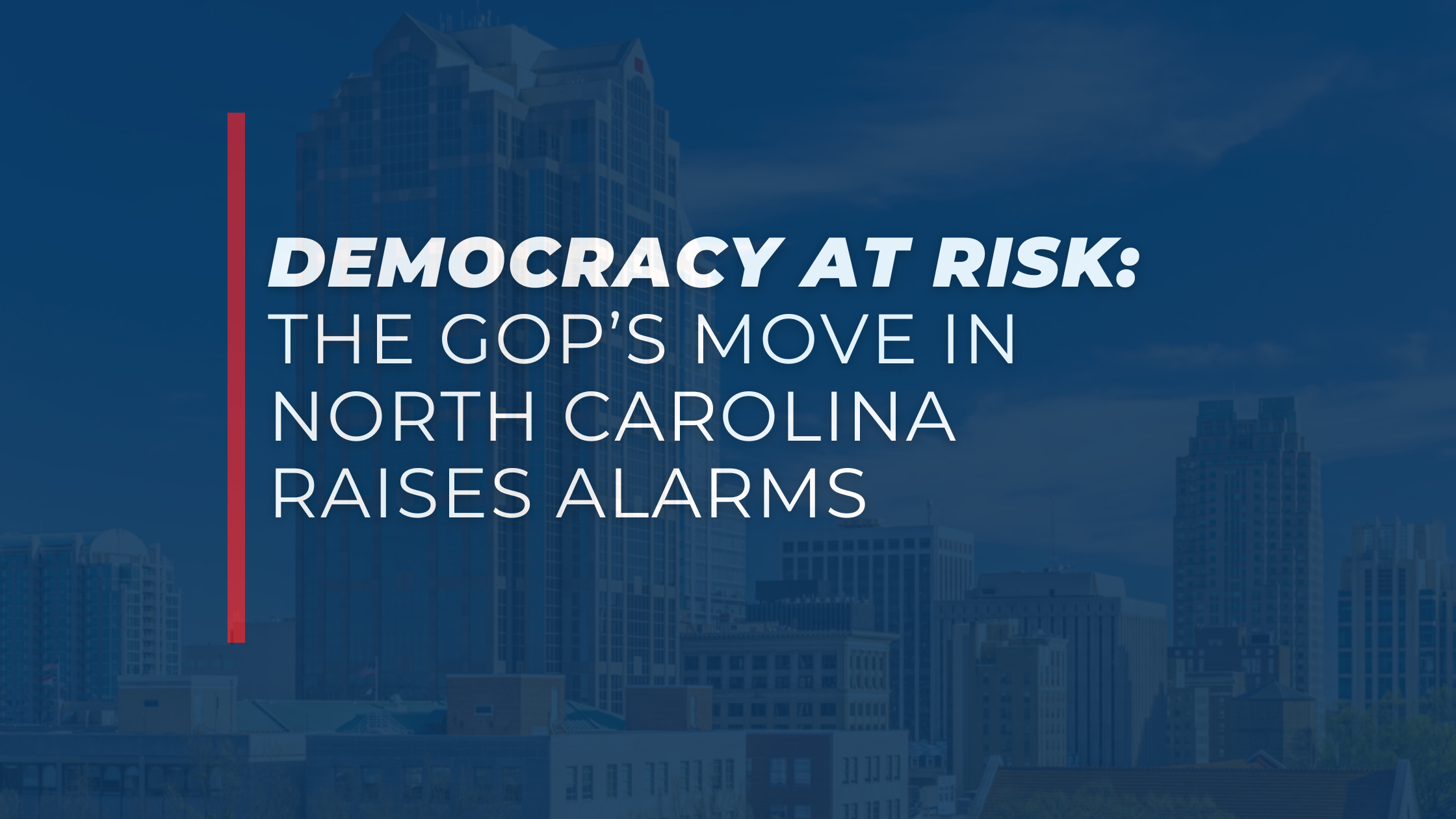
Democracy at Risk: The GOP's Move in North Carolina Raises Alarms
The fabric of democracy rests on accountability, transparency, and respect for institutional integrity. Yet, recent developments in North Carolina’s political landscape have ignited fierce debate about whether these principles are being deliberately undermined. At the heart of the controversy lies a 131-page proposal introduced by the Republican-dominated state legislature—ironically disguised as a hurricane relief bill. Instead of focusing on disaster assistance for affected communities, the proposal appears to serve as a vehicle for consolidating partisan power, leaving North Carolinians and political analysts deeply concerned.
A Hurricane Relief Bill in Name Only
Governor Roy Cooper minced no words in condemning the so-called relief bill. After vetoing the legislation, Cooper described it as inadequate at addressing the critical needs of disaster-stricken North Carolinians, particularly those impacted by hurricanes. “This bill fails to provide meaningful hurricane relief, instead sneaking in sweeping changes to state law that erode the foundations of our democracy,” he stated in a public address.
Upon closer examination, the bill goes far beyond hurricane relief. Sandwiched between provisions for disaster assistance are several controversial measures that curtail the independence and powers of key state offices. Critics argue that these proposed changes have little to do with aiding residents recovering from natural disasters and everything to do with reinforcing the legislature's control over governance.
A Pattern of Partisan Power Consolidation
Unfortunately, this is not an isolated incident in North Carolina politics. The Republican-led state legislature has faced repeated accusations of engaging in undemocratic practices designed to secure and maintain power. For instance:
- 2016 Partisan Reforms: After Democrat Roy Cooper was narrowly elected governor, the legislature passed laws during a special session to limit his executive authority, including reducing the number of political appointments he could make and restraining control over the state elections board.
- Gerrymandering Cases: North Carolina has been at the center of legal battles over heavily gerrymandered voting districts that disproportionately favor Republican candidates—an issue that the U.S. Supreme Court has even reviewed.
These actions suggest a troubling trend of prioritizing party dominance over fair governance, with the latest hurricane relief proposal designed as yet another instrument in this playbook.
The GOP’s Uniformity of Voice
One of the most troubling aspects of the legislature's recent actions is what many view as a lack of independent thinking among Republican lawmakers. Critics assert that party leadership increasingly dictates the direction of legislative action, leaving little room for dissent or debate within the Republican ranks. This approach erodes the very essence of representative democracy, where elected officials are expected to serve the diverse needs and opinions of their constituents—not act as a monolithic bloc advancing party agendas at all costs.
Political analysts have weighed in on the matter, warning of the long-term implications for governance in the state. When lawmakers prioritize partisan objectives over collaboration and transparency, it undermines public trust in democratic institutions. That erosion of trust is difficult to rebuild, and it leaves citizens feeling disempowered and disconnected from their government.
Public Outcry and Community Response
The proposed legislation has sparked an outpouring of criticism from across the political spectrum. Democrats, community leaders, and activists have voiced their concerns about what they view as a blatant assault on the state’s democratic principles. “This bill not only fails hurricane victims but also undermines the very democracy upon which North Carolina was built,” said one local activist.
Public sentiment appears to reflect a growing frustration with governance that prioritizes consolidation of power over effective problem-solving. Hurricanes devastate communities, and relief efforts should be swift, transparent, and above all, apolitical. By packaging rule changes within a relief bill, the legislature risks alienating the very voters it is supposed to serve.
What’s at Stake for North Carolina?
The implications of this power struggle extend far beyond partisan politics. When trust in public institutions erodes, it destabilizes the foundation of democracy itself. Without meaningful checks and balances or open debate, policymaking becomes unilateral, suppressing avenues for compromise and collaboration.
Governor Cooper’s veto offers a temporary safeguard, but the broader battle for democracy in North Carolina is far from over. The legislature has demonstrated its willingness to employ every tool at its disposal to enact its agenda, including measures that many argue subvert democratic norms. This fight is also a cautionary tale for Americans nationwide, underscoring the need to vigilantly defend democratic principles in every corner of the country.
The Road Ahead
For North Carolinians, the challenge ahead is clear. The state must push for smarter, more ethical governance that embraces accountability and transparency. This means demanding better from lawmakers and holding them accountable at the ballot box. Advocacy groups, non-profits, and engaged citizens play an essential role in ensuring that the broader public understands the stakes and is equipped with accurate information to take action.
The recent hurricane relief bill should serve as a wake-up call. It is not enough to simply reject poorly disguised power grabs; citizens and leaders alike must work together to ensure that North Carolina’s future is defined by fairness, equity, and democratic integrity.
If you value a government that works for you, speak up. Engage with local representatives. Join advocacy groups. Vote. These actions may seem small in isolation, but collectively, they form the bedrock of a system that respects and represents all of us.
North Carolina deserves better. And with your voice, it can achieve it.

